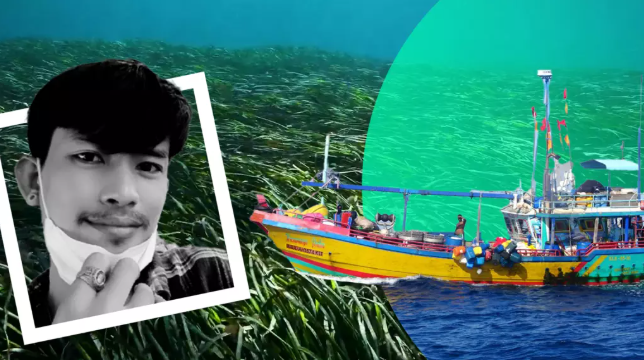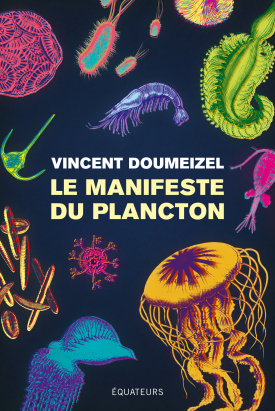As coastal resources dwindle, the Saya de Malha bank in the Indian Ocean increasingly attracts fishing vessels. Yet in this remote oceanic oasis, living conditions onboard are often extremely harsh. Navigation, food shortages, diseases, and conflicts make for journeys that sometimes end in death.
In October 2022, an American-British sailing couple, Kyle and Maryanne Webb, were navigating their yacht in a remote area of the Indian Ocean just south of the Saya de Malha bank when they spotted a bright yellow and turquoise vessel flying about a dozen red and orange flags atop its cabin. It was a Sri Lankan fishing boat.
Onboard, the crew appeared desperate and severely emaciated. They told the couple they had sailed about 3,700 kilometers from their home port of Beruwala, Sri Lanka. They had been at sea for two weeks and caught only four fish. They begged the Webbs for food, soda, and cigarettes. The couple gave them what they could, including fresh water, before continuing their journey. “They were clearly in financial distress,” said Maryanne Webb. “It broke my heart to see how far they have to go to support their families.”
A month later, near Saya de Malha again, the same crew hailed another vessel—the S.A. Agulhas II, an ocean research ship from the NGO Monaco Explorations. This time, the Sri Lankan crew was nearly out of fuel. The researchers had no fuel to spare but again gave them drinking water and cigarettes. The fishermen gave them fish in exchange. After this encounter, the fishermen stayed at sea six more months, only returning to Colombo, Sri Lanka’s capital, in April 2023.

A Perilous Voyage
Located hundreds of kilometers from the nearest port, the Saya de Malha bank is one of the most remote areas on the planet. Like the Sri Lankan vessel, reaching it is always a long and dangerous journey for the thousands of fishermen working there. They must sail far offshore for weeks at a time, risking severe weather and accidents.
Fishing is the world’s most dangerous occupation, with over 100,000 fishermen dying annually at work.
But beyond the hazards of the journey itself lies another threat to crews: isolated at sea, far from any authority, venturing to Saya de Malha often means enduring extremely harsh living conditions onboard.
Because of this remoteness, some vessels engage in transshipment—instead of returning regularly to port to unload their catch, restock food and fresh water, and allow their crew to rest, they transfer their cargo to refrigerated ships that make the journey. This allows them to stay longer at sea, a more economical solution but often at the cost of adequate provisions.
The Re-emergence of Forgotten Diseases
Isolation frequently conceals grim working conditions. For example, in January 2016, three Thai vessels left Saya de Malha to return to Thailand. During the voyage, 38 crew members fell ill. By arrival, six had died and the others were hospitalized. All suffered from beriberi, a neurological disease caused by vitamin B1 deficiency and linked to an insufficiently varied diet. Symptoms include tingling, burning sensations, numbness, breathing difficulties, lethargy, chest pain, dizziness, confusion, and swelling of the lower limbs.
Though preventable, this disease is deadly if untreated. Once nearly eradicated and historically confined to prisons, asylums, and migrant camps, its presence at sea is “clearly a sign of criminal negligence,” experts investigating the case said.
Crimes at Sea
While fewer Thai vessels now fish at Saya de Malha, questions about crew working conditions persist.
In April 2023, Ae Khunsena boarded the Chokephoemsin 1, a bright blue trawler in Samut Prakan, Thailand, for a five-month seagrass expedition. According to a report by Stella Maris, an NGO supporting fishermen, the working hours are grueling for a meager salary: Ae Khunsena earned 10,000 baht, about 270 USD per month, under his contract.
His life changed after three months at sea. During a Facebook call with his family, he described witnessing a fight that left at least one person dead. The body, he said, was kept in a cold room onboard. When his family pressed for details, the young fisherman hesitated. Another witness had reportedly received death threats and jumped overboard.
This call, on July 22, 2023, was Ae Khunsena’s last contact with his family. Days later, on July 29, he fell overboard at the ship’s stern. Security cameras recorded the incident. The man named as his employer on his contract, Chaiyapruk Kowikai, informed the family. According to him, the captain searched the area for a day but found no sign.
The ship returned to port in Thailand about two months later. After a brief investigation, police and the company ruled it a suicide, supported by footage showing Ae Khunsena alone when he went overboard.
In September 2024, a team from The Outlaw Ocean Project visited Ae Khunsena’s hometown about 300 km northeast of Bangkok. They interviewed his mother, cousin, local labor inspector, police chief, a humanitarian worker, and a maritime company official. For the family, the suicide theory raises doubts. “Why would he jump?” asked his cousin. “He had no problems with anyone.”
“He wanted to see me,” his mother added, recalling he consistently said in calls he planned to be home for Mother’s Day. To them, the scenario is clear: Khunsena likely witnessed a violent crime and was silenced by being forced overboard.
As often with crimes at sea, evidence is scarce and witnesses few and unreliable. It remains unknown if Khunsena was killed or took his own life due to depression or mental health issues. Whatever the case, the constant is clear: the working and living conditions onboard are so harsh that some lose their lives.
A Migrant Transit Route
This human tragedy in the remote region extends beyond fishermen. Saya de Malha has become a transit route for migrants fleeing Sri Lanka.
Since 2016, hundreds of Sri Lankans have tried to reach Réunion, a French territory, by boarding fishing boats bound for Saya de Malha. Few succeed, and when they do, they often face immediate deportation.
On December 7, 2023, a Sri Lankan fishing vessel that had spent three months fishing at Saya de Malha illegally entered waters near Réunion. The seven crew members were detained by local authorities and repatriated two weeks later.
Source: france24



